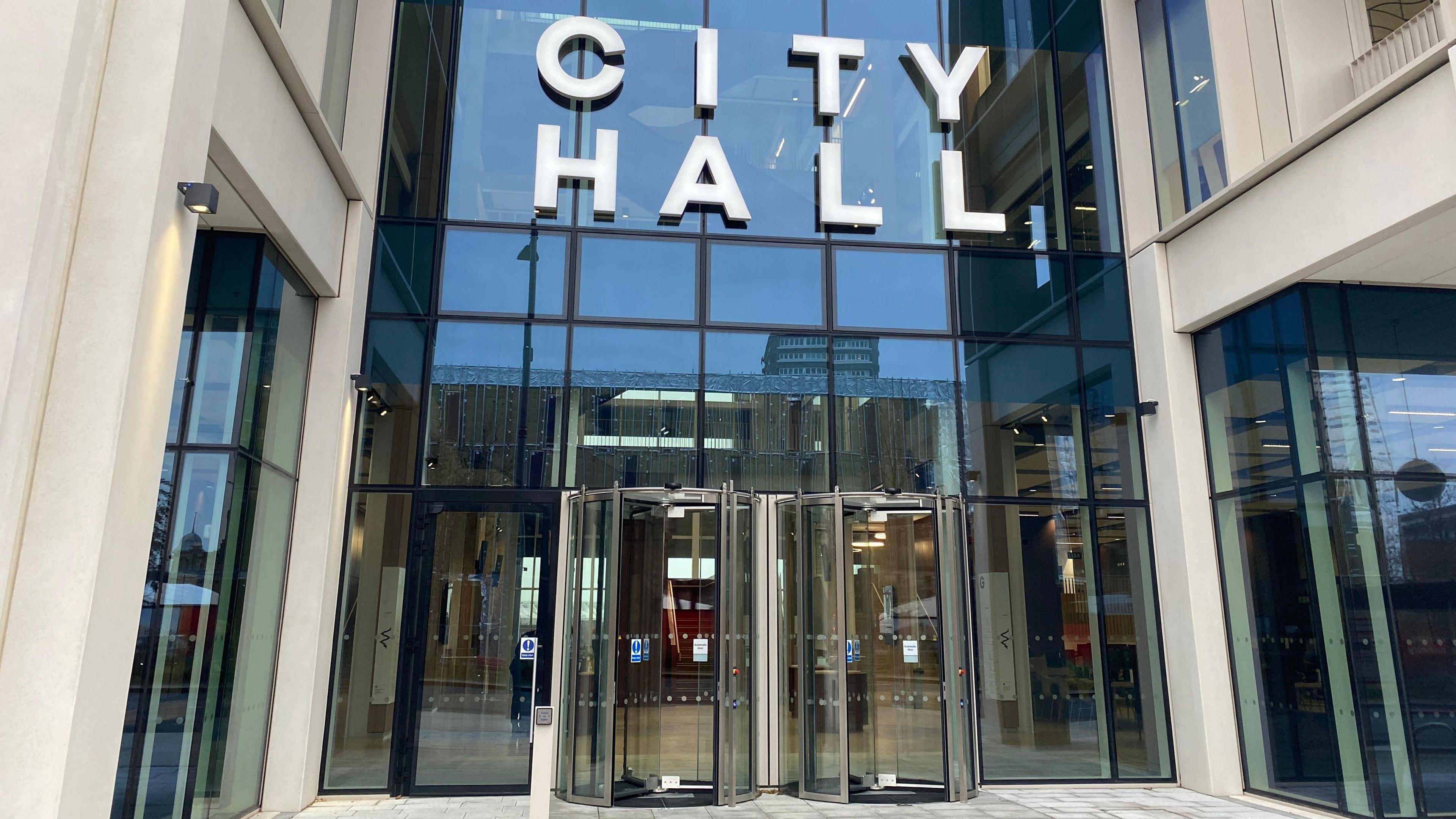'Toxic abuse' drives away councillors

Councillors at Sunderland's City Hall heard members had been driven from the job by abuse
- Published
Councillors on Wearside have backed calls to tackle abuse and intimidation aimed at politicians amid worries “increasing levels of toxicity” are discouraging people from standing for election.
A meeting of Sunderland City Council heard representatives had been targeted by spiteful emails, texts and “poison pen” letters, while others had been harassed and followed.
The council will write to the government urging it to develop a plan to address the issue.
The motion was linked to the Local Government Association’s Debate Not Hate campaign aimed at improving support for local politicians.
Other examples outlined at the council's City Hall included lies spread in election leaflets and on social media, as well as misogyny, homophobic slurs and threats against family members.
'Six years of threats'
Council leader Graeme Miller, of Labour, said he had faced “six years of threats” after taking up the top position on the authority.
He said: “Nobody should have to take threats, it just shouldn’t be allowed.
"That sort of personal abuse has driven councillors out of this chamber because they could not put up with the fact that their families could not live with the pressure of it anymore.”
Deputy leader Claire Rowntree, also of Labour, raised the motion and warned: “This must be taken seriously and not in any way normalised or framed as public expression.
“We do not need this insidious behaviour that makes good people turn away from political and civic life.”
'Zero-tolerance'
The motion was unanimously supported by full council, although several members stressed the importance of free speech, robust debate and legitimate criticism not being stifled.
Councillor Paul Edgeworth, leader of the Liberal Democrat group, echoed Ms Rowntree's position, stating the council needed to “make sure that people aren’t put off in engaging in local democracy”.
But he added Sunderland's Labour representatives “need to take a look at themselves about some of the behaviour” displayed in the past, although he acknowledged he thought it had “died off” in recent times.
Councillor Antony Mullen, Conservative group leader, said his party backed the motion but stressed there was still “a duty to protect free speech”.
The motion also included taking a “zero-tolerance” approach to abuse, regularly reviewing support available to councillors and working with police to ensure reporting mechanisms are in place.
Follow BBC Sunderland on X (formerly Twitter), external, Facebook, external and Instagram, external. Send your story ideas to northeastandcumbria@bbc.co.uk.
Related topics
- Published24 January 2024
